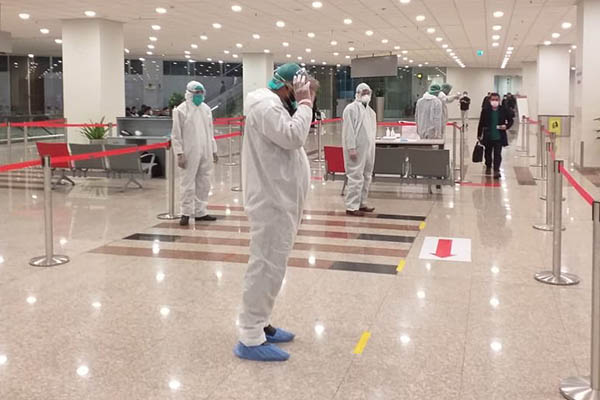
File photo. Twitter
Published by state-run APP, the Ipsos survey claims only 3 percent of Pakistanis have clear views on COVID-19 pandemic
A survey of prevailing attitudes on the coronavirus pandemic within Pakistan has found that one in three citizens believe in at least one conspiracy theory related to the virus, with a full 42 percent declaring it a “foreign conspiracy,” according to a report published in state-run APP.
Citing a poll conducted by global market research company Ipsos, APP reported that 33 percent of respondents alleged that COVID-19 had been created in a laboratory and released into the world “on purpose,” while 4 percent believed it only affected people over 55. Prime Minister Imran Khan had, in March, during a nationally televised address, said that the virus is only dangerous for the elderly and sought to play down its severity among younger demographics.
The survey, which polled 1,028 people—72 percent men and 28 percent women—and was comprised of 68 percent urban and 32 percent rural respondents, was conducted during May 19-23, a few days ahead of Eidul Fitr when the country eased almost all lockdown restrictions “to boost the economy.”
It found that only 3 percent of the respondents—representing the entirety of Pakistan—had “clear-headed” views about the pandemic despite the country reporting more than 50,000 confirmed cases at the time it was conducted. It also found that women were three times more likely than men to have clarity on the impact and threat posed by the virus.
According to the Ipsos poll, six in 10 Pakistanis are not comfortable in allowing their children to return to school in the coming weeks. However, 50 percent felt comfortable going back to work, while 51 percent believed they would lose their jobs in the next six months.
Three out of five Pakistanis said they deserved aid from the government due to COVID-19, with the poll noting that this expectation was highest among members of lower economic classes. Three in five Pakistanis also believe that the ease in lockdown would lead to a detrimental increase in infections and deaths.
The survey said nearly half of Pakistanis polled—in line with repeated government messaging that it cannot stop the virus from spreading and citizens have only themselves to blame for getting infected—said they would hold themselves responsible if the coronavirus situation worsens after ease in lockdowns, while one in four blamed the government.
In its report, Ipsos also provided some recommendations for policymakers to raise public awareness about the threat posed by the virus. It has called for “an intensive yet uniform, coherent and integrated communication campaign by the federal and all provincial governments as crucial to sensitize all Pakistanis about the fatal nature of this pandemic.”
It also said that as misconceptions about the virus were widespread among Pakistanis regardless of their social class or literacy level, it was wise to develop and implement a myth-busting strategy coupled with clear messaging.
Ipsos also recommended taking the religious community onboard in the government’s bid to spread “right and factual” messaging about COVID-19, adding that Twitter enjoyed the least confidence among Pakistanis and campaigns to address communication gaps should focus on other media for maximum success.
